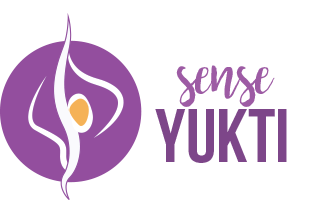
Close your eyes for a few seconds. Bring all your senses into the present moment: feel your fingers and toes moving, touch your heart, hear the sound of silence (or maybe a bird twitter, an ambulance siren) and watch your mind. Visualize a medical sign while breathing: science proves meditation is medication.
What is meditation?
Many of us experience meditation without even realizing it. It can arise spontaneously in moments when a sense of ourselves as separate individual appear to merge into a oneness with all life, as if boundaries dissolve and we become one with all things. Meditation is the act of getting the mind focused in the present moment with no influence by the past or the future. Meditation is a good tool to study oneself as it teaches us that we are no different from other people; it shows us the nature of mind (nothing is wrong or right).
Meditation is a mean of training the mind to recognize the internal drama, chatter and panic; it gives an opportunity to acknowledge the various habits and patterns of the mind and cultivates new and more positive ways of being.[1] Regular practice leads to a state of deep peace where the mind becomes calm and silent. To make an analogy, meditation is to the mind what gym is to the physical body. In other words, meditation trains the mind to mental attention that awakens us beyond the conditioned mind and habitual thinking, and reveals the nature of reality.
The practice of meditation is found throughout history, and in various religions today from Hinduism, Judaism, Christianity and Islam. It initially took place as repetitive, rhythmic chants, which today are commonly called mantras. Scholars find out that the first written imprint came from the Hindu traditions around 1500 BCE. For the sake of most recent scientific studies, I am going to focus on meditation, which derives from western Buddhism.
Common types?
1/Mantra: is an instrument of the mind, a powerful sound or vibration that you can use to enter a deep state of meditation. As you repeat the mantra (e.g. the easiest mantra to use is OM (pronouced mmmm, the sound of satisfaction), it creates a mental vibration that allows the mind to experience deeper levels of awareness. Repetition of the mantra helps us disconnect from the thoughts filling our mind.
2/ Shamatha meditation: Shamatha means serenity or tranquility, a quiet mind. It cultivates the concentration in action; we slowly learn to become more attentive and receptive to all experiences we encountered, regardless of their nature
3/Vipassana meditation: Vipassana means insight, insight into the true nature of our minds, the true nature of reality. In this meditation: People sit quietly in an alert posture with eyes closed while breathing through the nose. As thoughts arise, we simply put them aside (don’t force them) and bring our awareness back to the sensations of breathing in the body (no analysis of neither thoughts nor feelings). With Vipassana, we acknowledge what happens in our mind and let it go.
4/Tonglen meditation: Tonglen means “giving and taking” and is a method for connecting with suffering —ours and that which is all around us— everywhere we go. It is a method for overcoming fear of suffering and for dissolving the tightness of our heart. Primarily it is a method for awakening the compassion that is inherent in all of us, no matter how cruel or cold we might seem to be. We begin the practice by taking on the suffering of a person we know to be hurting and who we wish to help. For instance, if we know of a child who is being hurt, we breathe in the wish to take away all the pain and fear of that child. Then, as we breathe out, we send the child happiness; joy or whatever would relieve their pain.[2]
5/ Lovingkindness meditation: This meditation uses words, images, and feelings to evoke a lovingkindness and friendliness toward oneself and others. We can use the following recitation: “May we be happy and accept the roots of happiness”, we are expressing an intention, planting the seeds of loving wishes over and over in our heart.[3]
Some benefits?
1/Immune system: Meditation boosts antibodies including recovering cancer patients. A study at the Ohio State University found that progressive muscular relaxation, when practiced daily, reduced the risk of breast cancer recurrence. In another study at Ohio State, a month of relaxation exercises boosted natural killer cells in the elderly, giving them a greater resistance to tumors and to viruses.[4]
2/Stress Management: A study published at the faculty of Washington in May of 2012 showed that the mediation group reported less stress as they performed the multitasking test than people from other groups. Meditation helps us gain a new perspective on stressful situations. It basically builds skills to manage stress by slowing down our heart rate and breathing and normalizing the blood pressure. It helps using oxygen more efficiently, and makes us sweat less. [4]
3/ Productivity: Meditation has a lasting effect on concentration, memory. A researcher at the Martinos Center for Biomedical Imaging at Charlestown found that people who practiced mindful meditation had the ability to ignore distractions and incorporate new facts quite rapidly which lead to an increase in productivity.[5]
4/Creativity: A study conducted by some researchers at Leiden University in the Netherlands on both focused-attention and open-monitoring mediation to see if there was any improvement in creativity afterwards. They found that people who practiced focused-attention meditation did not show any obvious signs of improvement in the creativity task following their meditation. For those who did open-monitoring meditation, however, they performed better on a task that asked them to come up with new ideas.[6]

Recent Comments